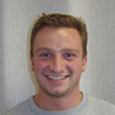Making Translational Research Tangible – At the University of North Carolina, Chapel Hill (UNC), students are being encouraged to think like they’re in charge — and then to take charge. Some of these enterprising students are making the transition from trainee to entrepreneur as they complete their doctoral degree.

Excerpt from the article: Graduate student and entrepreneur Jon Edwards — who completed a certificate in 2009 in entrepreneurship with an emphasis in the life sciences at the UNC Kenan-Flagler Business School — now acts as a student mentor for ideaCRUNCH. The typical graduate student, Edwards says, has little understanding of seed funding or venture capital. “You hear these terms, but you really don’t know how they work,” he says.
Having already gone through the process of setting up a hypothetical company through his coursework, Edwards got an early chance to apply that inside knowledge when Andrew Hemmert, a graduate student working with Edwards in the lab of chemistry department chair Matthew Redinbo, developed an idea for a novel biosensor technology designed to identify biowarfare nerve agents and pesticides in field conditions. Hemmert wanted to develop the idea into a company, and Edwards was happy to join in. The group filed a patent in December 2009 and simultaneously developed a business plan for what later became Identizyme Defense Technologies.
The two students spent the subsequent year participating in the Launching the Venture course. They received $50,000 in phase I Small Business Innovation Research funding from the federal government, along with matching state funds that allowed Edwards — Hemmert moved on — to conduct early product research during his doctoral studies.
Edwards says that one of the challenges for would-be entrepreneurs is that it’s often necessary to put in long hours in the lab doing the unglamorous but necessary paperwork to keep the business running. But “you can’t sacrifice scientific rigor,” he says. “You need to make sure that you are in the lab and you are getting your work done.”
Read the full article at: http://sciencecareers.sciencemag.org/career_magazine/previous_issues/articles/2011_09_09/caredit.a1100093
Science: Karyn Hede is a freelance writer in Chapel Hill, North Carolina.
